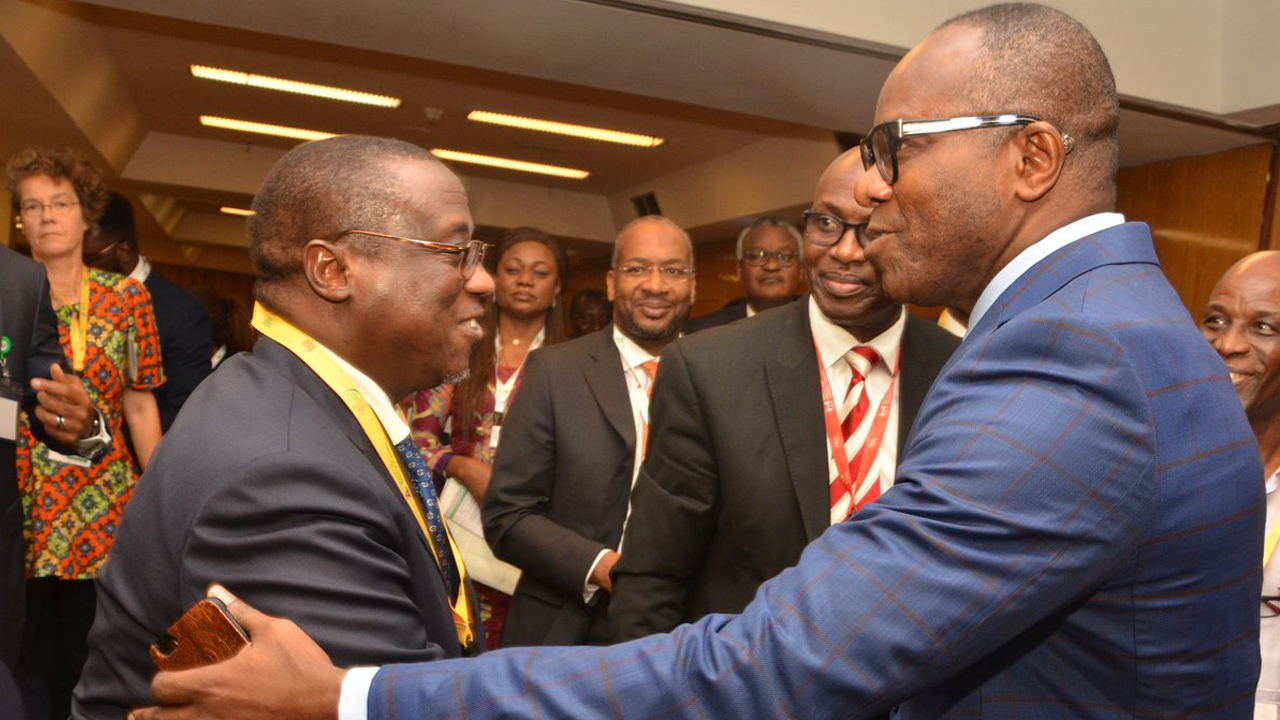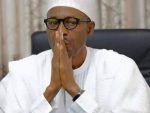The Kachikwu–Baru Management Crisis


It transpired, recently, that an official memorandum by Dr. Ibe Kachikwu, minister of state for Petroleum Resources, to President Muhammadu Buhari, who is also the substantive minister of Petroleum Resources, was leaked to the public. Whoever leaked the memo is not of interest to this writer because, if the author of the memo, the minister of state for Petroleum Resources, was denied access to his boss for several weeks by some overweening presidential aides, the question as to who leaked the memo could be answered by a pupil in the primary school!
In the said memo, dated August 30, 2017, Dr. Kachikwu accused Dr. Maikanti Baru, the group managing director of the Nigerian National Petroleum Corporation (GMD, NNPC), of insubordination and, principally, of unilaterally awarding contracts valued at about $25 billion, and that the contract awards were done without the due process of the law and were patently ultra vires the GMD, NNPC’s office.
Since its establishment about four decades ago, the NNPC has wriggled in a cesspool of rank corruption, malfeasance and misfeasance. It is the very epitome of the worst form of corporate sludge. Like the emoluments of Nigeria’s lawmakers, the mode of the business and earnings of the corporation remain shrouded in mystery. Nigerians do not know how much crude oil is mined from the womb of the Niger Delta every day; neither do they know how much is realised from the sale of exported petroleum products on a daily basis. This explains why any revelation of graft in that corporation attracts the attention of not a few Nigerians.
Kachikwu has alleged that Baru had unilaterally awarded contracts worth more than $25 billion, knowing full well that any contract valued below $20 million should be handled by the NNPC Tenders Board or, if above $20 million, should be referred, with a “No Objection Certificate” from the Bureau of Public Procurement (BPP), to the Federal Executive Council (FEC). The NNPC is a unique corporation whose Board of Directors, in spite of the unambiguous provision in the instrument establishing it, is precluded from the affairs of the cash cow of the nation-space. Dr. Kachikwu’s memo nearly fully removed the lid from the sealed can of the legendary graft in the NNPC. The law establishing the NNPC is the Nigerian National Petroleum Corporation Act (Cap. 320, Laws of the Federation of Nigeria, 1990). Section 1 (2) thereof provides inter alia, as follows: “The affairs of the Corporation shall, subject to Part II of this Act, be conducted by a Board of Directors of the Corporation which shall consist of a Chairman and the following other members…” Being the Chairman of the NNPC Board of directors, Dr. Kachikwu wonders, in the said memo, why he was not privy to the alleged contract awards. Being a first-class brain in Law, he must have wondered why some nondescript “Circulars” from the Secretary to the Government of the Federation (SGF) or some such other eerie official directives should take pride of place over the enabling Law of the NNPC, which has not been amended.
In what appears to be Baru’s response to a query from the Presidency, Mr. Ndu Ughamadu, the group general manager, Group Public Affairs Division of the NNPC, on behalf of his boss, the GMD, NNPC, stated, inter alia, that “the law and the rules do not require a review or discussion with the Minister of State or the NNPC Board on contractual matters.” That makes the Minister of State in the Petroleum Resources Ministry and Chairman of the NNPC Board worse than a spare tyre, a lame-duck minister/board chairman. “What is required,” according to Ughamadu, “is the processing and approval of contracts by the NNPC Tenders Board, the President in his executive capacity or as Minister of Petroleum Resources, or the Federal Executive Council (FEC), as the case may be…” Question: if the Minister of Petroleum Resources (PMB) has something to do with the “processing and approval of contracts,” why shouldn’t the spare tyre minister assume the position of the minister in his absence? Mr. Ughamadu then continued, “for both the Crude Term Contract and the Direct Sale and Purchase (DSDP) agreements, there are no specific values attached to each transaction to warrant the values of $10 billion and $5 billion respectively placed on them in the claim of Dr. Kachikwu….” (underlining mine).
Ughamadu glibly labels transactions amounting to $15 billion as “off-takers of crude oil and suppliers of petroleum products under agreed terms,” whatever that means! The question which arises from this imperspicuous term is, considering that the NNPC Board is a bull-dog without a mouth let alone a tooth, which institution(s) or individuals lend their imprimatur to such transactions and terms (as in DSDP) involving billions of dollars? What is the meaning of “Crude Term Contract and the Direct Sale and Purchase agreements” as used by Ughamadu in his response to his boss’s query? Couldn’t this be a corporate stratagem to avoid the NNPC Tenders Board, the NNPC Board, the FEC and the contracts over $20 million rule? Why should Mr. Ughamadu state that Dr. Kachikwu should not attach “specific values” to contracts valued at a colossal sum of $15 billion because they are classified as “off-takers of crude oil and suppliers of petroleum products under agreed terms”? Both Dr. Baru and Mr. Ughamadu have to enlighten Nigerians on the signification of this phrase, which sounds like a cryptic drain-pipe through which undisclosed crude oil, whose quantity and value are never officially disclosed, finds its way into the effluent channel! How do you transact any business without attaching monetary value to it?
We appeal to the Federal Government (not any of the chambers of the National Assembly) to institute a powerful investigative panel to look into the issues raised in Kachikwu’s memo to the President and the plethora of questions thrown up by Ughamadu’s reaction thereto. The panel should establish the truth or otherwise of Ughamadu’s claim that many contracts beyond the competence of the NNPC Tenders Board (NTB) were sent to the President for his approval, and find out whether the President, in his capacity as President or as the substantive minister of Petroleum Resources, is competent to approve any contract valued at more than $20 million. The panel should also painstakingly examine and review the various “circulars” and other official directives governing the operations of the NNPC against the background of the Act establishing the corporation, the NNPC Act.
Meanwhile, the position of the emasculated NNPC Board vis-à-vis the sweeping powers of the NTB must be carefully looked into and reviewed. Above all, the Petroleum Industry Bill (PIB), in its original form, which seeks to introduce a clear and transparent regulatory framework into the corporation, should be enacted into law with efficient speed.
Source: The Guardian








